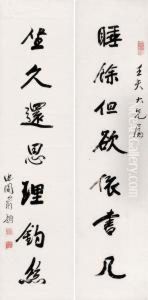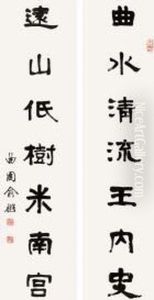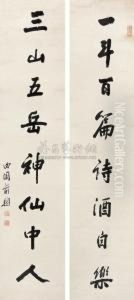Yu Yue Paintings
Yu Yue was a Chinese philologist, educator, and Qing dynasty scholar. He was born on April 26, 1821, in the city of Haining, Zhejiang Province. Yu Yue was known for his profound knowledge of Chinese classics and historiography. His scholarly work spanned a wide range of topics, including literature, history, geography, and epigraphy.
Yu Yue's education was grounded in the Confucian classics, which was typical for a scholar of his time. He passed the imperial examinations with high honors and achieved the Jinshi degree, which was the highest academic degree in the imperial examination system. His scholarly career was marked by both traditionalism and innovation. He was a proponent of the evidential research method (Kaozheng), which emphasized rigorous textual criticism and empirical evidence in the study of classics and history.
He held various official positions throughout his career, but Yu Yue is primarily remembered for his academic contributions. He wrote numerous books and commentaries, and his work was characterized by a meticulous attention to detail and a critical approach to historical texts. His most notable works include commentaries on the 'Book of Changes' (I Ching) and the 'Classic of History' (Shangshu). Yu Yue was also a mentor to many students, and he played a significant role in the intellectual life of his time.
Despite his contributions to Chinese scholarship, Yu Yue's life was not without controversy. He was known for his sharp critiques of other scholars and was involved in various intellectual disputes. Nevertheless, his impact on Chinese scholarship was profound, and his works continued to be influential long after his death on September 13, 1907. Yu Yue's legacy is that of a scholar who bridged the traditional scholarly world of Qing China with the emerging modern approaches to textual criticism and historiography.



